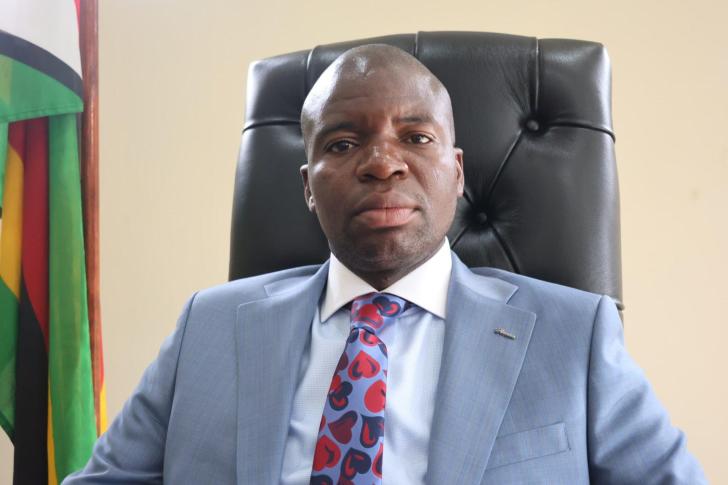News / National
Mnangagwa defends Geo Pomona Waste deal
06 Jun 2025 at 08:40hrs |
0 Views

President Emmerson Mnangagwa has defended the controversial takeover of Harare's waste management by Geo Pomona Waste Management, claiming the arrangement will significantly improve a sector long neglected by the City Council.
Mnangagwa made the remarks on Thursday while commissioning a new waste sorting plant, 45 refuse collection trucks, and 100 skip bins at the Geo Pomona Waste Management facility in Harare.
The event comes amid growing outrage from residents and civil society groups over the opaque nature of the tripartite deal involving Geo Pomona, the Harare City Council, and the Ministry of Local Government. Critics have slammed the lack of transparency and consultation in awarding the multimillion-dollar contract.
"To date, the waste collection crisis, particularly in the capital city of Harare, has had dire consequences, ranging from environmental degradation to public health risks," said Mnangagwa.
"We have seen outbreaks of diseases — a situation that is wholly unacceptable. Such conditions must become a thing of the past."
He said the project aligns with the national development goals outlined in Vision 2030, which aims to create clean, modern urban environments that drive economic growth.
"Cleanliness and the efficient management of service delivery are not just indicators of good governance but also essential benchmarks for a nation's competitiveness," he added.
Under the deal, Harare City Council is expected to pay Geo Pomona US$40 per tonne of waste, with the company projected to collect up to 650 tonnes daily once fully operational — a cost that has drawn sharp criticism from residents and stakeholders.
Despite the government's optimism, the company is yet to deliver fully on its mandate. Uncollected refuse still plagues many residential suburbs, raising doubts about the effectiveness of the private takeover.
Residents' associations have expressed deep skepticism, accusing the government of sidelining public input and burdening the city with an expensive and unproven solution.
Nevertheless, Mnangagwa urged other municipalities to emulate the Harare model, suggesting it could be a blueprint for improving waste management nationwide.
"Through the purchase of this equipment, we must see the waste management system being capacitated to efficiently and consistently collect waste across all parts of Harare," he said. "I urge sector players in other towns and cities to take a leaf from such initiatives."
As public frustration mounts over visible service delivery gaps, the Geo Pomona project continues to spark debate about the role of public-private partnerships in Zimbabwe's local governance.
Mnangagwa made the remarks on Thursday while commissioning a new waste sorting plant, 45 refuse collection trucks, and 100 skip bins at the Geo Pomona Waste Management facility in Harare.
The event comes amid growing outrage from residents and civil society groups over the opaque nature of the tripartite deal involving Geo Pomona, the Harare City Council, and the Ministry of Local Government. Critics have slammed the lack of transparency and consultation in awarding the multimillion-dollar contract.
"To date, the waste collection crisis, particularly in the capital city of Harare, has had dire consequences, ranging from environmental degradation to public health risks," said Mnangagwa.
"We have seen outbreaks of diseases — a situation that is wholly unacceptable. Such conditions must become a thing of the past."
He said the project aligns with the national development goals outlined in Vision 2030, which aims to create clean, modern urban environments that drive economic growth.
"Cleanliness and the efficient management of service delivery are not just indicators of good governance but also essential benchmarks for a nation's competitiveness," he added.
Under the deal, Harare City Council is expected to pay Geo Pomona US$40 per tonne of waste, with the company projected to collect up to 650 tonnes daily once fully operational — a cost that has drawn sharp criticism from residents and stakeholders.
Despite the government's optimism, the company is yet to deliver fully on its mandate. Uncollected refuse still plagues many residential suburbs, raising doubts about the effectiveness of the private takeover.
Residents' associations have expressed deep skepticism, accusing the government of sidelining public input and burdening the city with an expensive and unproven solution.
Nevertheless, Mnangagwa urged other municipalities to emulate the Harare model, suggesting it could be a blueprint for improving waste management nationwide.
"Through the purchase of this equipment, we must see the waste management system being capacitated to efficiently and consistently collect waste across all parts of Harare," he said. "I urge sector players in other towns and cities to take a leaf from such initiatives."
As public frustration mounts over visible service delivery gaps, the Geo Pomona project continues to spark debate about the role of public-private partnerships in Zimbabwe's local governance.
Source - NewZimbabwe
Join the discussion
Loading comments…




























